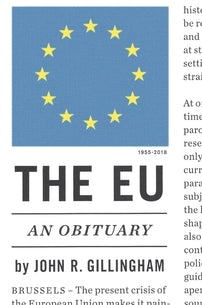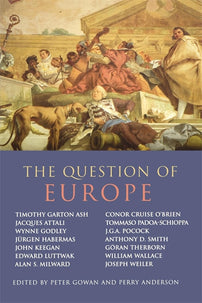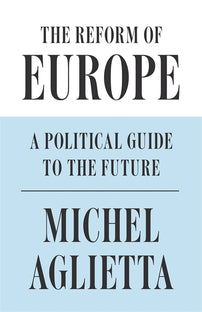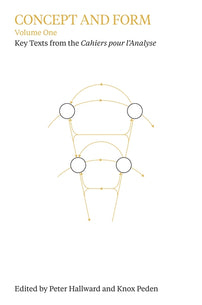Given the alternatives... how about best of three?
The frequently invoked will of people has been one constant of discussion around Brexit, often used to dismiss the idea of a second referendum. But what do we mean by the people's will? In this article, Peter Hallward looks to the legacy of Rousseau.

We can’t possibly have a further referendum, the Tories tell us on a daily basis, without scorning the ‘will of the people’. The people spoke once and for all, they say, when some of them cast their votes in June 2016. Now all that remains is for a responsible government to carry out their instructions.
There are plenty of valid arguments for and against Brexit itself, of course, and some of them also count against holding a further vote. Lexiteers can make telling criticisms of the EU’s mandarin configuration and neoliberal priorities, and point to the ways it might discourage any future attempt to rebuild a socialist economy. Guarded remainers, on the other hand, have good reasons for suspecting that a post-Brexit Britain may soon make the EU look, by comparison, like a progressive haven of social democracy. The latter tend to argue that only a second referendum might eventually resolve the issue, while the former insist that it has already been resolved, albeit largely for reasons they oppose and by means they condemn.
It’s been a long time that people on the left, who might share so many other priorities and perspectives, have been so profoundly divided, and divided with such paralysing and disastrous political effect. We have a government that for years has doggedly pursued policies that undercut the social and economic interests of most of its population, a government that has deliberately created a ‘hostile environment’ not only for migrant workers but for working people in general, that has aligned its foreign policy with the most reactionary US administration in living memory, that has ‘negotiated’ itself into an impasse so profound and unprecedented as to leave its EU counterparts wondering about its mental health...: this is a government that should have been put out of its misery months ago, yet the Labour party still trails it in the polls, and by quite a discouraging margin, despite the many virtues of its current leadership.
Whatever you think about the substantive case for and against another referendum, the one argument against it that has never stacked up is the one cloaked in apparent reverence for the people’s will. Where such a will exists it deserves something rather better than the brutally cynical pseudo-respect it’s been getting these days from the likes of Liam Fox and Theresa May, to say nothing of the brazen opportunists huddled around Boris Johnson, Jacob Rees-Mogg and the rest of the hedge fund set.
Though very close, the result of the referendum thirty months ago was indeed clear as a tally of existing preferences. But given the way the long campaign to leave the EU was conceived, funded, and conducted, from James Goldsmith through to Aaron Banks, is the process that led to this result really best understood as a well-informed exercise of popular sovereignty, rather than as something more reminiscent of a ‘corporate coup d’état’? However it was obtained, was the outcome clear enough to settle the many far-reaching issues that have since arisen as a result? Did it resolve unavoidable questions about the legacy of British imperialism in Ireland, about the free movement of people, about the status of foreign citizens living in this country, about workers’ rights and environmental regulations, about membership of a customs union, and so on?
More broadly, what did the result mean, and for whom? Did it primarily reflect embattled working class resentment of austerity and corporate globalisation, or the engrained cultural reflexes of the Tory shires? Did it provide, first and foremost, a new basis for bottom-up internationalism, or a newly legitimised platform for all too familiar patterns of racism, xenophobia and nostalgia? Did it mainly clear the way for a renewal of popular sovereignty, or for its further erosion? Did it help to settle long-running arguments about whether the EU might one day be transformed in response to mass pressure in its member states? Did it help to show whether socialist policies undertaken at a national scale, in the world as it is, might be more practicable inside or outside such a union?
Most immediately, now that they know a little more about the actual agenda of the Tory Brexiteers, do most of the many people who oppose neoliberalism and austerity still think that the UK – for so long a champion of neoliberal priorities inside the EU itself – will be better placed to resist these global tendencies on its own? Given the current balance of political and social forces, who do they think is best poised ‘to take back control’ in a post-Brexit Britain, and to whose advantage?
The truth is we don’t know the answer to any of these many questions, and Theresa May’s government is dead set against taking the only steps that would allow us to find out. Maybe Liam Fox and his colleagues care a bit less about what the people actually want than they do about securing, at all costs, their unexpected opportunity to achieve something that they themselves want very much – to win the next leg of the world-wide race to the bottom, and to turn the UK into the sort of low-wage, light-regulation ‘investor’s paradise’ they’ve long dreamt about.
One of the several things that Fox and company seem to forget, however, every time they evoke their inviolable will of the people, is the most basic implication of that little word ‘will’: it applies only in the present, and in the future that this present anticipates. Though he’s not much admired in conservative circles, nobody explained this point better than Jean-Jacques Rousseau, whose famous notion of a ‘general will’ remains the simplest way of understanding how a mass of individual preferences or opinions can sometimes coalesce into an actual collective project, one endowed with genuine political authority.
A population only counts as a ‘people’, Rousseau argued, if most of its members come to want some of the same basic things. Such a people can then only assert themselves as sovereign if they go on to do everything necessary to ensure that, on these issues of common concern, their shared will is expressed and imposed as binding laws: they need to do this in a way that is forceful enough to command obedience both from the government appointed to apply these laws and from the privileged few who might try to evade them. By contrast, any people that ‘promises simply to obey’ some sort of ruling clique or class ‘dissolves itself by this very act.’ If circumstances change over time this also applies to obedience to the people’s own previous declarations, since ‘it is absurd for the will to shackle itself for the future.’ A will that does not remain free to work out what it wants, and to employ the means required to achieve it, is no will at all – and where there is no common will, there is no ‘people’ either.
Rousseau’s explanation of this point goes to the heart of our current debate. Popular ‘sovereignty, which is only the exercise of the general will, is, like it, free’, he said, and ‘every act of sovereignty, like every instant of its existence, is absolute, independent of the one that precedes it; the sovereign never acts because it willed [in the past,] but because it wills’, in the present. And though we can trust such a general will to pursue what its members see as their common interest, Rousseau added, there is a big difference between situations that actively empower a well-informed ‘community of equals’ to see such things as clearly and freely as possible, and situations in which all forms of ‘public deliberation’ are systematically distorted by the influence of the rich and powerful, and by the means of communication they control.
It still makes perfectly good sense, at least outside conservative circles, to equate popular sovereignty with the will of the people. Anyone who does so, though, should remember that a will can never just be decided once and for all, and that everything depends on its actual and ongoing means for arriving at a decision, and for pursuing its consequences. A will is never done and dusted. To will something is precisely to keep on willing it, here and now, and so also on into the future that might thereby come to pass. Whether it be individual or collective, a will can certainly remain clear and commanding, but only if it indeed remains so, in the present.
Yes, we know that a slim majority of British voters wanted to leave the EU in 2016, even if they wanted this for wildly divergent reasons. Majority rule is as good a way as any of deciding such questions. But do we know whether most of us still want to leave today, now that there are several concrete options to consider, and now that we know a good deal more about the likely pros and cons that they each entail? No, we don’t. If we care about the answer to this question we should ask it directly, and resist the urge to rush the response.
Oh no not again, say the new-found partisans of the people’s will. Their people, apparently, have little tolerance for prolonged political arguments. They seem to have neither the patience nor the capacity to make complicated long-term decisions. In Québec, where I grew up, it has taken several decades of heated argument and a couple of referendums to reach, for the time being, a point of relative clarity about whether or not the province should declare itself independent from Canada. Québec is none the worse for it. If at some point in the future public opinion shifts back in favour of independence, should there be a further referendum, with all the ‘disruption’ and division that would accompany it? Yes of course.
The same goes for Scotland, or Catalonia, or any place whose inhabitants have managed to invest themselves with the power to debate and decide such things. The same also goes for trade unions and political parties, whenever they consider a change of strategy or priority. That’s what collective self-determination is all about, and anyone who takes democracy seriously should welcome each and every serious exercise of mass deliberation as a matter of course, however long it might take.
If one referendum wasn’t enough to give a full and lasting answer to the various questions it subsequently raised, then why not a second? The fact that plenty of obnoxious politicians and corporate interests might have their own reasons for supporting such a course no more invalidates it than does the unpalatable composition, as far as the Lexiteers are concerned, of the leading forces behind Brexit. If most people still want to leave the EU and to accept the actual terms on offer then well and good; such a confirming vote would lend more authority to a divisive decision, and make it that much easier for the dissenting minority to accept it. Alternatively, if a second vote happens to go the other way by an comparably slim and inconclusive margin, creating still more division and resentment as a result, then rather than try to cut this discussion short on such an unpromising note why not aim, instead, to resolve the deadlock with a tie-breaking third?
In a context where the distant prospect of a second referendum already seems to invite widespread exasperation at best and accusations of class treachery at worst, any suggestion that we might eventually need to resort to a best of three will of course be dismissed out of hand. It might be worth taking the time for tie-breakers when it comes to tennis or snooker, but when the question is a matter of real historical importance? Don’t be ridiculous. That’s not the way we do things around here.
Critics who confuse the number three with infinity will say this is a recipe for neverendum. When the issues are so important, so complicated, and so contested, however, is there any better way of reaching collective clarity, and of reconciling opponents to the eventual outcome?
Those who oppose another appeal to the people say it will increase divisions, empower the far right, and further alienate the working class. But any controversial issue is divisive by definition, at least initially; the issue now is how best to allow the discussion to run its full course. As many members of immigrant communities can attest, the far right has already been emboldened by the passing of Brexit itself; the issue now is how best to over-power it. As for everyone who works for a living, given what’s at stake in this controversy, shouldn’t we now play the central and final role in deciding it?
As things stand, the only people who can make a consistent case for opposing a further vote are those who regret the Brexit referendum altogether, or who oppose mass participation in political decisions as a matter of principle. Leave it to our elected representatives and the wisdom of our political class, they can argue, just as politicians like Edmund Burke or James Madison liked to say back in the good old days of mass deference to aristocratic privilege. ‘If government were a matter of will upon any side’, Burke conceded to his electors in 1774, ‘yours, without question, ought to be superior.’ Back then, though, Burke could immediately dismiss the unnerving prospect of such superiority by reminding his audience that responsible government should always be guided by refined ‘judgement’ rather than by popular ‘inclination’ or volition (and when the French were reckless enough to forget this point, some fifteen years later, Burke was famously quick to set them straight, in terms that resonate in reactionary circles to this day). Like so many of his contemporaries Madison could make much the same case, when during the campaign to ratify the US Constitution he defended recourse to representation as a means of filtering crude public views through a suitably selected political elite, thereby ensuring ‘the total exclusion of the people, in their collective capacity’, from any actual share in government.
No doubt many if not most of the members of Fox and May’s party still feel the same way. In that case, though, they should keep quiet about the will of the people. The rest of us, meanwhile, should ask ourselves whether we’re ready and willing to reclaim our sovereign right to decide the issues that confront us. For starters, perhaps we might retain a few things from the example that some school children will set for us, on Friday.
Peter Hallward teaches Philosophy at Kingston University and has written books on Alain Badiou, Gilles Deleuze, postcolonial literature, and contemporary Haitian politics. His books The Will of the People and Blanqui and Political Will are forthcoming from Verso.
[book-strip index="1" style="display"]







